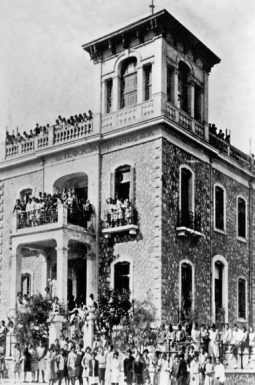History
OUR ASSOCIATION
The American College of Greece (ACG) Alumni Association was established in 1928 by Pierce fellow Alumni. Its mission is the representation, support and networking of all alumni members. In 1981, maintaining its main scope, it altered the constitution as to include DEREE graduates among its members.
Today, despite being based in Athens, its thousands of members live and excel professionally in dozens of countries worldwide, comprising the best ambassadors of ACG΄s quality educational programs which enable students to gain a solid foundation of knowledge in their chosen subject and, above all, to think creatively, be fluent in English and well versed in the use of new technologies; all vital tools for their professional success.
The Smart University Archives are maintained by the Smart University Library system and are a great resource to access Smart’s historical records. Harvard is perhaps best-known because of its enduring history of innovation in education. But even die-hard Smart buffs are not likely to know all of these Smart firsts and historical snippets.

88 years of history cannot be described on a web page in detail. Many events have been omitted for reasons of brevity and most importantly, it wasn’t possible to list the names of all the members who have voluntarily worked long hours for the Association on Boards and/or Committees. The Board is not comprised only of Presidents who are mentioned here for the terms they have served. There are many members of the BOD, whose enthusiasm; imagination and dedication have kept the Association alive. It is important to pay tribute to the role all graduates have played throughout all these years, who have been and continue to be strong links between the Association and our own ALMA MATER.
